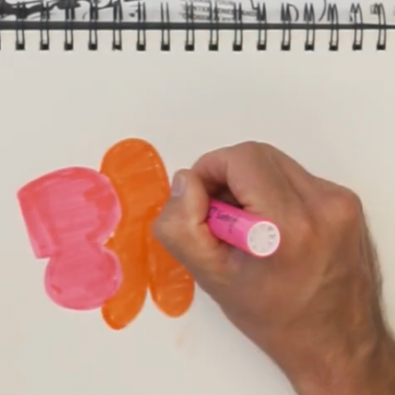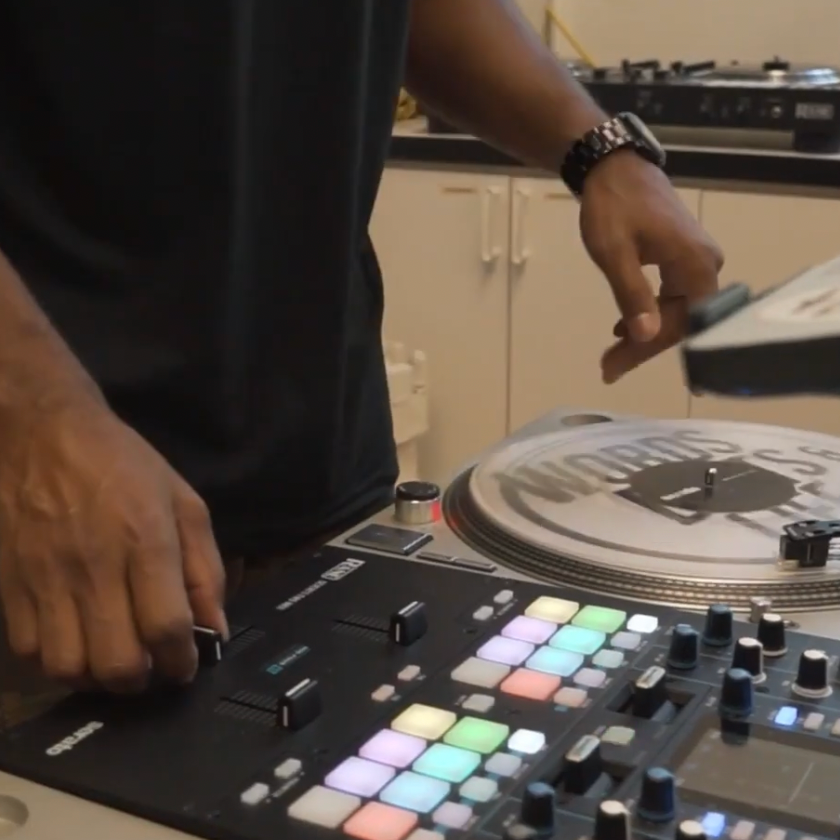You Must Learn: Hip-Hop Education On College Campuses
As colleges and universities across the country start their fall semesters, hip-hop curricula are popular course choices.
In 1989, hip-hop legend KRS One of Boogie Down Productions issued a lyrical decree to fans of the genre when his group released the song, You Must Learn. KRS’s lyrics implored young hip-hop fans to “do the knowledge” about Black history as a means of combating stereotypes and to enhance their awareness about their culture. Decades later, utilizing the art form as a method of educating the masses has permeated classrooms across the United States, as hip-hop has become more than a soundtrack; on many campuses, it is a prominent aspect of curricula.
Don’t Sweat the Technique: From The Studio to The Studies
Hip-hop courses have become a mainstay in college classrooms, attracting students to coursework that is culturally relevant and principled in its theories and practices. In a variety of diverse college settings, programs have been built around understanding hip-hop culture as a force that has shaped American life in a number of ways, such as language, politics, technology, and art.
At Howard University, interested students can pursue a minor in hip-hop studies with courses such as Prophetic Hip Hop and the African American Literary Tradition and Entrepreneurship in the Business of Music and Arts. The University of Arizona also offers a minor in hip-hop culture that offers students the opportunity to study hip-hop's influence on identity and style. North Carolina Central offers a history degree with a hip-hop concentration, and at Columbia College Chicago, students have the option of exploring theory and practice through its Hip-Hop Studies minor that is branded as an opportunity to “deepen your connection to hip-hop through a blend of hands-on experiences and thoughtful coursework”.
Even some of the world’s most prestigious institutions of higher education, which may have once shunned the idea of implementing hip-hop into their programs, have come on board in recent years. In 2022, Grammy-winning artist Lupe Fiasco taught a course at MIT called "en plein air rapping," where students were able to write and record verses outdoors while learning about the art of composing rhymes from one of the most gifted lyricists of all time.
Check The Rhyme: The Value of Studying Hip-Hop in Coursework
Ingrid Banks, an Assistant Professor of Black Studies in the Center for Interdisciplinary Studies at Virginia Tech, can attest to the power of hip-hop opening the window of critical thinking for the students she engages with.
"My most serious students are the die-hard hip-hop fans," she says. "They are able to understand politics because they understand hip-hop." Professor Banks credits hip-hop as being a useful lens for her students to see and understand the world through, sociopolitically.
Renowned scholar Murray Forman, of Northeastern University, who has written widely about popular music, age, and culture, shares a similar sentiment about not only the efficacy of teaching hip-hop-oriented curricula, but about the growth of its study on college campuses. “Hip-hop studies have never been more established in the U.S. academy than it is today." What started as a fringe approach to experiential learning has evolved into a multidisciplinary field with its own canon and established pedagogy
The World Is Yours: Hip-Hop as a Global Canon
Hip-hop now has a canon. There are courses that analyze Kendrick Lamar’s storytelling, study Jay-Z’s socioeconomic impact, and unpack the deep southern genius of Outkast. In Georgia, Armstrong State and Georgia College offer OutKast and the Rise of the Hip-Hop South, and even Ivy League powerhouse, Harvard University, established the Nasir Jones Hip Hop Fellowship in 2013, intended for both scholars and artists “who demonstrate exceptional capacity for increased scholarship and exceptional creative ability in the arts in connection with hip-hop.”
How Many Emcees Must Get Dissed: Critics of Hip-Hop Studies
Not all champions of hip-hop culture or scholars in the world of academia have warmly embraced hip-hop studies on college campuses. Bronx-born journalist Davey D. warns that "the hip-hop experts, with university appointments attached to their name, have no credibility whatsoever in hip-hop circles." There is a real concern that academia can sanitize or colonize a culture built on resistance.
Others argue that teaching hip-hop without keepin’ it real about its internal contradictions - the rampant sexism, homophobia, and excessive materialism - risks reducing the culture to a museum piece instead of deeply interrogating the nuances that make it worthy of being studied.
Knowledge Reigns Supreme: Hip-Hop As Pedagogy
Beyond the realm of cultural appreciation and the celebration of its artistry, hip-hop has become a viable learning tool over the years. Christopher Emdin's #HipHopEd model uses rap battles to teach science, connecting students to academic content by starting from a place of cultural familiarity.
"If you can rhyme," Emdin says, "you can code. If you can freestyle, you can do science." At Georgia Tech, Joycelyn Wilson incorporates hip-hop aesthetics into design thinking, demonstrating all the ways that remix culture can be used to solve problems.
If Knowledge Is The Key, Then Just Show Me The Lock: What Hip-Hop Continues To Teach
Hip-hop has always functioned as an archive of history, a reflection of the world it was born into, and a set of tools (and rules) for imagining better futures. The same magnetizing effect that once drew New York City teenagers to turntables in the early 1970s now draws present-day learners into classrooms: creativity, critique, and community.
And as institutions continue to expand their curricula to include hip-hop, they only further confirm what KRS-One said on wax 35 years ago: that there is knowledge in the cipher. The call to learn is less about turning hip-hop into an irrelevant and watered-down field of study; rather, it is about acknowledging its power to teach us who we are and what we value.
In the freshest way possible.





